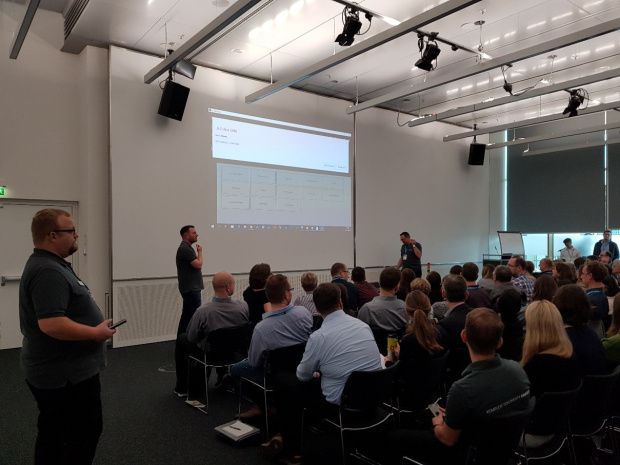Is AI a chance or a threat for technical communicators?
The phrase artificial intelligence (AI) is a mystery. Everyone immediately associates something with it, but the ideas are rarely identical.
- Is AI an algorithm that automatically sends advertising e-mails from mattress companies after one purchased a bed online?
- Is AI the saviour of mankind that solves all our problems in the not-too-distant future (climate change, world peace, warp drive)?
- Or is AI simply a calculation program that automatically switches our alarm clocks to 0.00 o'clock after 23.59 o'clock?
The most propable answer is: AI is all of it, for there is no universally valid definition of artificial intelligence, as speakers at the tcword conference frequently emphasized. However, in order to get closer to the topic, there were numerous talks on artificial intelligence in general and its use in technical documentation in particular (the Internet of Things, the connection of all possible technical and mechanical devices to the internet, has proven to be a current field of application. Two Schema employees learned just how error-prone AI still is when their sophisticated live device show did not work during a lecture).
Great uncertainty about AI
The uncertainty as well as the interest in the subject of AI is high. Nobody wants to miss the future and be left behind the newest trends. At the same time, there is the fear of becoming obsolete because of AI. Is there any need for technical communicators at all when an automated program takes over the writing? Check out what AI is already capable of: https://talktotransformer.com/). Is multi-paged product documentation still necessary when "smart" devices perform every desired action via voice control and answer questions in direct "conversation" better than any documentation?
The answer to this question is as simple as unsatisfactory: We don‘t know. Of course, nobody can predict the future, but even trends for the next five or ten years are impossible to predict, considering the current speed of technical development.
Will chatbots, another hot topic of the conference, succeed? Nobody knows.
Will our freezers in ten years automatically communicate with amazon drones, check for our beer supply and replenish them without us noticing? Nobody knows.
Will machines, striving to create a perfect world, one day extinguish mankind? Nobody knows.
Technological change as chance for technical communicators?
But precisely this uncertainty, which was echoed in many talks and also in questions from the audience, is an opportunity. The future is not predetermined, everyone is invited to shape it. And, strange as it may sound, technical communicators are very well equipped for this challenge.
Every AI is based, at least for now, on the parameters that humans set for them. No lawnmower AI suddenly turns into a chess computer. When creating artificial intelligences, experience in knowledge architecture and the processing of information is required in addition to programming knowledge, if the AI should bring a real advantage. Skills, many technical communicators already have.
So, is AI a threat for technical communicators? On the one hand yes, because some of the traditional tasks of a technical writer can and will be done by an AI in the future. On the other hand, it is a great chance because it offers technical communicators the opportunity to play an active role in promoting technological progress using their knowledge.
It is certain that tcworld will continue to focus on this subject with talks and workshops in the coming years. Because really nobody wants to miss the future.

